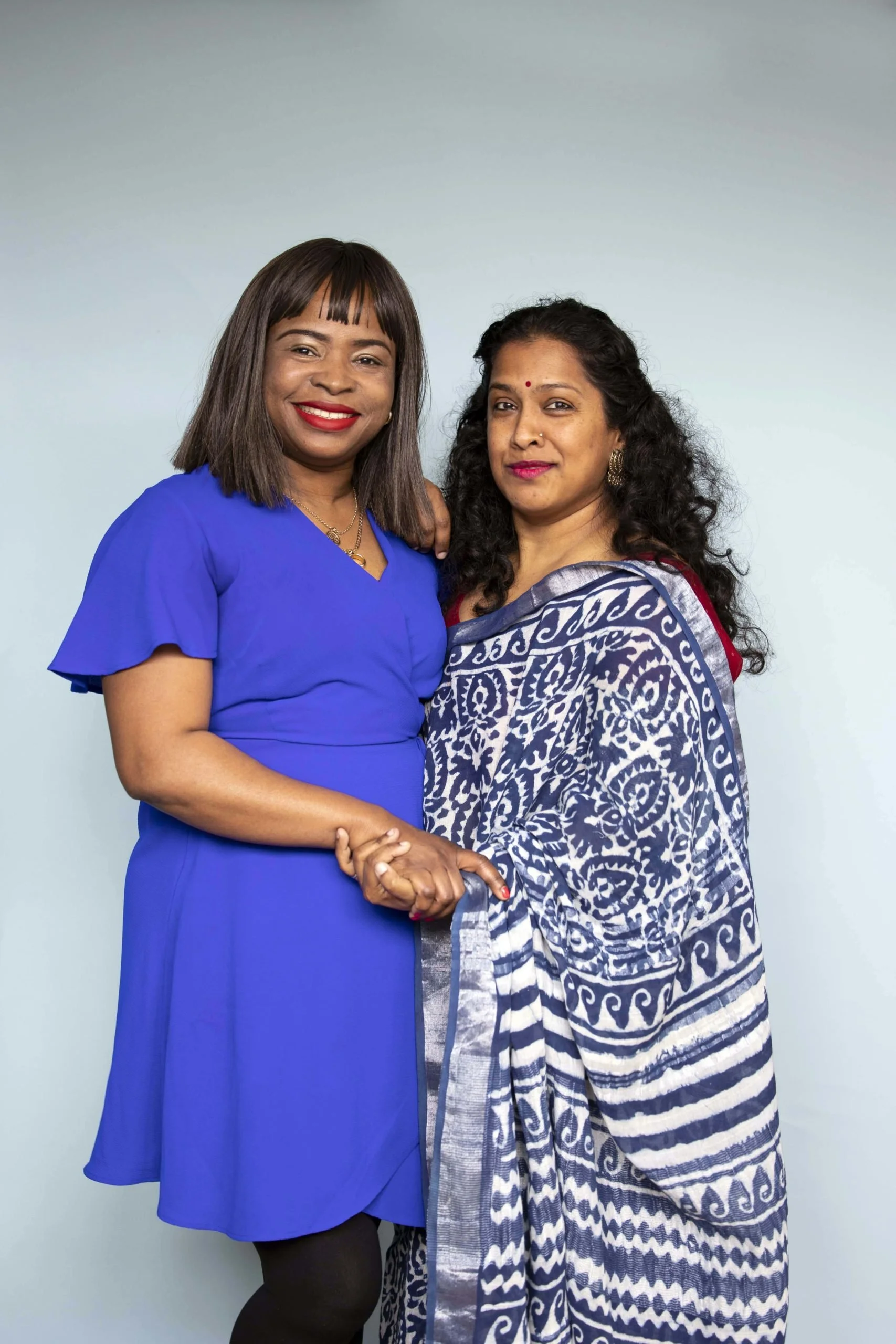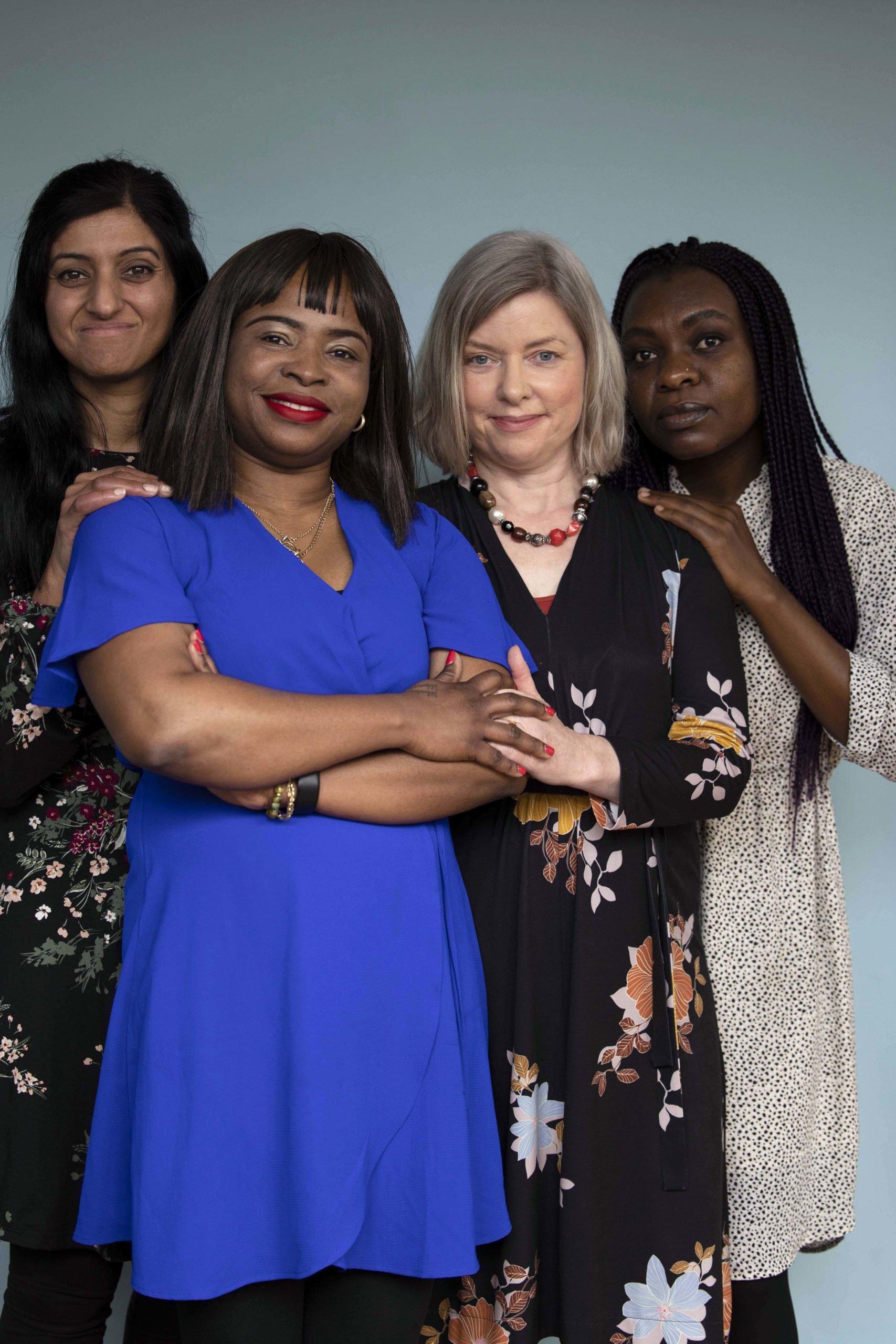Review: “It’s Ok To Not Be Ok” a Podcast by Good Day Cork
By Opinion Editor Baneen Talpur
The conversation around mental health is a growing one in Ireland. There is much more discussion on the issue, with people opening up more about their struggles. While this conversation is great and is highlighting the issue for the masses, often immigrants are left out of the conversation and the issue is mainly spoken about from a white perspective. Until now.
“It’s Ok To Not Be Ok,” is a documentary podcast co-created by Good Day Cork in which migrant women, as well as white women, are discussing mental health on both a personal, and cultural level.
(Left) Deborah Oniah is with Joanna Dukkipati, founder of Good Day Cork.
Deborah Oniah acts as narrator, asking some very intriguing questions, allowing each woman to open up about their struggles with mental health. Her ability to make people feel comfortable on the podcast is fascinating. Her guests, award winning writer Danielle McLaughlin, mind fitness coach Sukhi Byrne, and international development and food policy student Sibusisiwe Mhlophe give us some valuable insights into their struggles and coping mechanisms when it comes to their mental health. I commend them for being so honest and vulnerable in the discussion.
The podcast starts off with a warm welcome from the team. Deborah starts on a personal note talking about the performativity that is expected of women, this notion that women have to keep it together. Deborah has broken away from that and is using the platform to discuss this with others. Her CV is also very impressive as a youth worker, community organiser and mental health advocate highlighting that even people who ‘have it together’ can also struggle with their mental health.
Deborah explains, ‘Everyone needs to get empowered. In this documentary you find many everyday tools for yourself and the people you care about and the best way to support them.’ Sukhi comments, ‘When we normalise the reality of life’s journey - the highs and the lows - we learn that it is ok to not be ok.’
New audio documentary about mental health stigma created by Cork women (left to right) - Sukhi Byrne, Deborah Oniah, Danielle McLaughlin and Sibusisiwe Mhlophe available on gooddaycork.com with support from Career Training Internships.
It addresses the issue of social isolation, one that I have seen in many communities. My parents came to Ireland in the late 1990s and still struggle to fit in and integrate with Irish society. They often talk about the social isolation that comes with being an outsider and how difficult it is to make friends. I have seen it in other communities too, where people have lived in the country for years but still struggle with basic things such as the language, simply because they are not having enough social interaction.
They talk about the need to conform to their new society riddled with performance in order to fit in and feel accepted. This ‘fitting in’ again leads to that operation in survival mode where people fail to recognise that things may not be as good mentally as they seem. Mental health is also a huge taboo in many cultures which is addressed in the documentary. In both south Asian and black cultures, mental health is often labelled as ‘being crazy’ and no one is willing to talk about issues such as anxiety out of shame. There is a huge social pressure to conform with rampant judgment of those that admit that they are struggling, tackled very well by the documentary, and the expectation of living in a communal society with a performative culture.
Danielle says, ‘Pretending uses up a lot of energy, energy that could be better spent on other things, like getting better.’ And, Sibusisiwe adds, ‘People must normalise listening without judgement and interruption.’
They discuss how culture can have trauma associated with it, giving the example of how Punjabi culture is based on survival since after partition, Punjab was one of the largest affected areas with so many having to flee. It talks about what it feels like when a whole group has been living in survival mode and how it is detrimental for the group as they are no longer able to recognise what healthy, in terms of mental health, looks like. They discuss their experience with accessing therapy and overcoming the shame of it. The experience of direct provision and the unfortunate trauma that comes from that experience is mentioned too.
The conversation on what good mental health or a healthy mind looks like was very helpful and great for any future listeners if they are trying to figure things out. The discussion on how to improve mental health or good habits to do better were very accessible, achievable, and genuinely nice ideas. They talked about simple things such as reflecting throughout the day and pressing pause which while hard to start with our fast-paced lives, gets much easier with practice. All of their suggestions come from the direct experience of the speakers from McLaughlin’s writing to Mhlophe’s running. The importance of simple things such as quiet time in the morning, writing in order to express yourself and how you are feeling or for escapism has been tried and tested by me and I vouch for it.
Deborah’s aim is ‘to spread ‘awareness, awareness, awareness…’ as ‘mental health is a human need…’ She hopes this documentary will begin to change the narrative around mental health, especially in marginalised communities. Danielle adds, ‘It is in sharing the stories of our lives that we come closer to understanding what other people might be experiencing.’
(Left to Right) Sukhi Byrne, Danielle McLaughlin, Deborah Oniah,and Sibusisiwe Mhlophe. Photo Credit: Clare Keogh
While the podcast mainly speaks from a migrant perspective, the conversations will resonate with many. There are some excellent points made on all the topics discussed in a very eloquent manner, these women are uplifting each other, and it feels like a conversation with friends around the dinner table. The sound production also reflects what’s being discussed, providing the listener with a unique experience.
Joanna Dukkipati founder of Good Day Cork adds, ‘I hope this documentary offers comfort to other marginalised and underrepresented groups of people and encourages all of us to seek help with mental health without shame. I also hope it helps the wider community understand the challenges and inspires all of us to actively listen and witness each other.’
Overall, a fresh documentary with a universal message: it is ok to not be ok, and it is ok to reach out for help.
“It's OK To Not Be Ok” was created with support from Career Training Partnerships. Edited by Daniel Clancy and music by Justin Grounds. This audio documentary is freely available on gooddaycork.com or any listening platform.




